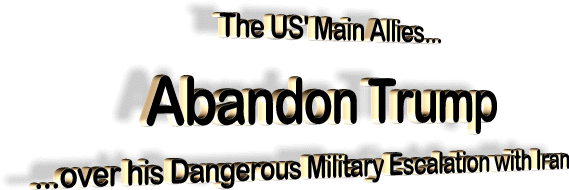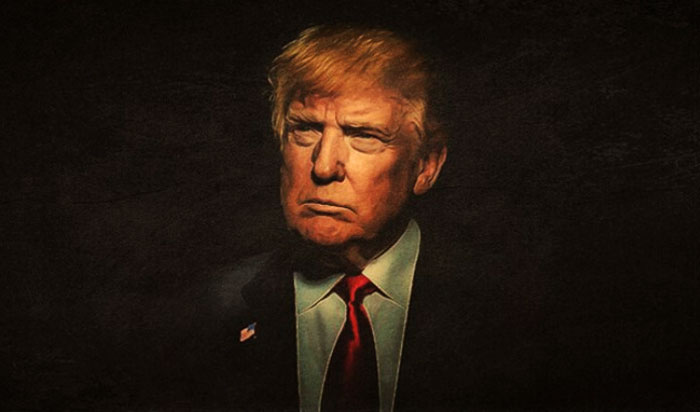|
have been unkind toward Trump's decision, with only Israel vocally backing the gambit...
The U.S. decision to assassinate Iranian Maj. Gen. Qassem Soleimani has been greeted with warnings from Washington's traditional allies to avoid any further escalation of the conflict with Iran.
The drone strike on Iran's top commander was personally approved by President Donald Trump, and was reportedly launched without consulting U.S. allies.
Needless to say, the Iranian government is furious and has promised "severe revenge" for the attack.
For Tehran, the attack crosses all red lines and represents Washington behaving as a rogue superpower making a desperate gamble with the future of the region.
Global reactions to the attack have also been unkind toward Trump's decision, with only Israel vocally backing the gambit.
The picture that emerges is one of the United States facing increased isolation after it potentially lit the fuse for a massive regional conflict.
The United Kingdom - Trump Didn't Even Bother to Tell Boris Johnson
While the U.K. has long been the closest ally of the United States - especially in regard to military interventions in the Middle East - it appears that Washington failed to consult London about its intention to launch the fateful airstrike in Iran or even tip it off to the attack, the BBC reports.
Labour Party leader Jeremy Corbyn is now pressing Prime Minister Boris Johnson to confirm what information, if any, was given to the U.K. prior to the airstrike.
In a statement Friday, Foreign Secretary Dominic Raab said that a war with Iran,
The foreign secretary's statement declined to endorse or condemn U.S. actions.
Meanwhile, fellow Conservative Party MP Tom Tugendhat, who also chairs the Parliament's Foreign Affairs Committee, told BBC News:
Acting leader of the Liberal Democrats Sir Ed Davey also blasted President Trump for,
Continuing, he demanded the prime minister clarify London's position, adding:
Other politicians and commentators across the political spectrum have also vented their anger over the attack on social media.
While London has typically been loyal to Washington in matters of war and peace in the Middle East, the U.S.'s clear disregard for protocol and shocking decision to attack Soleimani could risk undermining relations between the two countries.
France - "Escalation is Underway"
France was the first European country to react.
Euro News reports that Junior Foreign Affairs Minister Amelie de Montchalin told RTL radio that,
She added that,
According to The Guardian, de Montchalin said that,
President Emmanuel Macron also has voiced the need for "restraint," urging the parties involved to,
Macron phoned Russian President Vladimir Putin to discuss concerns over the killing, according to a statement published Friday by the Kremlin's website.
According to the statement, both sides expressed concern that the attack,
Like the U.K. and other European countries, France played a crucial role in forging a new relationship with Iran through the 2015 nuclear accord.
When Trump withdrew from the deal in May 2018, Paris was among the most vocal critics of the decision.
Germany Also Warns of "Dangerous Escalation"
The government of Germany largely blamed the crisis on Tehran but warned that the Middle East had reached,
Government spokesman Ulrike Demmer said that the U.S. move,
Israel Stands Alone at Trump's Side
Tel Aviv quickly backed Trump's action, with Israeli Prime Minister Benjamin Netanyahu saying in a statement:
Opposition leader Yair Lapid of the Blue and White Party also praised the killing of Soleimani, whom he claims got,
|


